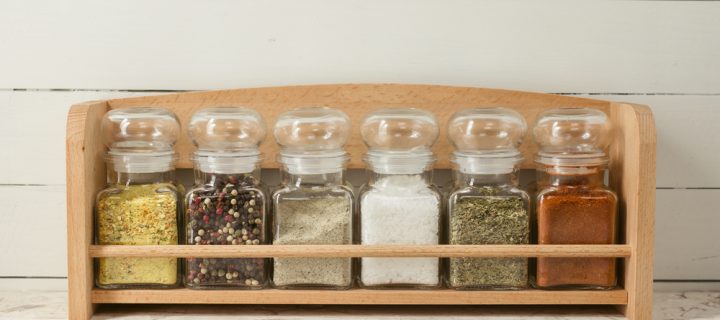You can gradually reduce your salt intake by adding more flavoring from herbs and spices.
Everyone needs to eat some salt. Experts say the average adult human body needs only about 1 teaspoon of salt per day, and kids, even less than that. But the average person living in the US gets way more salt than that each day. It’s estimated that most Americans eat about twice this amount of salt daily.
Of course it’s important to get some salt. Your body needs salt to maintain the proper balance of bodily fluids needed to make sure your muscles and nerves are running properly. Without salt, you’d be in trouble. But too much can damage your heart, cause high blood pressure, and more.
Learning how to season your food so that it tastes great while lowering the amount of salt you add can go a long way towards improving your health. Check it out. Here are five amazing seasonings, and how to use them in order to reduce your salt intake.
Cumin
This spice comes from the parsley family but it’s really quite different from the green sprig. Grown in India and Iran, cumin is often bought in North America as a brown spice. It’s a softer spice, ultra-tasty, and versatile. Cumin can add flavor to tacos, chili, fish, pork, and of course, curry. But don’t be fooled. This spice doesn’t taste like curry itself. Add a bit at a time as too much can soon overtake your dish.
Cumin is also delicious when combined with other spices and herbs such as turmeric, cayenne, garlic, saffron, coriander, and cinnamon.
Related: 5 Fantastic Homemade Fall Lattes
Onion
You might think of onions as something that sit on your burger but using onion powder instead of salt can be effective. Or, you might simply chop some up and fry it in a pan as a side to your main dish. Onion is an excellent addition to so many foods, including fish, all types of meat, soups and sauces.
Savory
Savory is actually a blend of a few different spices. It comes from the southeastern region of France known as Provence and consists of oregano, thyme, rosemary, and marjoram. Sprinkle it into your dishes when cooking beef, fish, poultry, pork, and vegetarian fare. This is another flexible, all-in-one seasoning.
Garlic
Some people really don’t like garlic, and if this is you, by all means leave it aside. But if you like the sweet taste of roasted garlic, consider adding it to your food in place of salt. (Remember, go for real roasted garlic or garlic powder. Garlic salt also contains, you got it, salt!)
Sprinkle garlic powder on your homemade fries, chop it up, roast it and add it to pork, pasta, vegetable dishes, and more. Delicious.
Thyme
Last but not least, thyme is a great seasoning for your main dishes, as well. Like the others on this list, you can pair it with a variety of foods including beef, chicken, pork, veggies, and even roast potatoes. Thyme has an earthy, slightly lemony taste to it making it a welcome, gentle addition to your food.
Cutting back on salt takes time and should be done gradually. Salt is said to be an acquired taste and the more of it you consume, the more you need as your taste buds become accustomed to it. Gradually replacing some of your salt with spices, herbs, and seasonings adds more depth and character to your food and is better for your health.
For a full list of herbs and spices you can use in place of salt, visit the Cleveland Clinic online.
photo credits: Melica/Shutterstock.com












